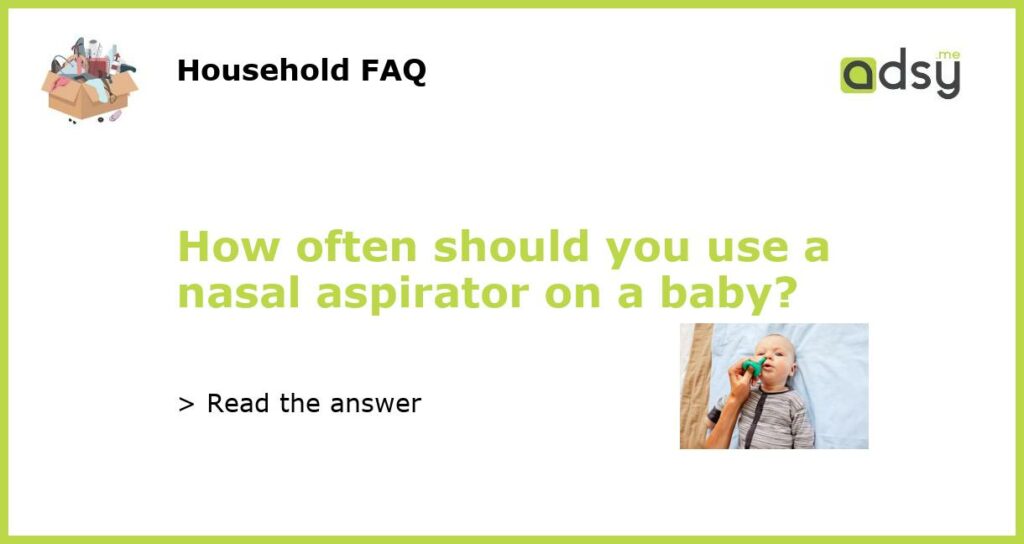What is a nasal aspirator and how does it work?
A nasal aspirator is a device used to suction mucus out of a baby’s nose. There are two main types of aspirators: bulb syringe aspirators and electric aspirators. The bulb syringe aspirator is a simple, manual device that uses suction to draw out the mucus. The electric aspirator uses a motor to create suction and is typically more powerful than the bulb syringe.
Why would you need to use a nasal aspirator on a baby?
Babies are not able to blow their own noses, so when they have a cold or congestion, the mucus can build up and make it difficult for them to breathe, sleep, and eat. Using a nasal aspirator can help to clear out the mucus and provide relief for the baby. It can also help to prevent more serious conditions such as ear infections and respiratory issues.
How often should you use a nasal aspirator on a baby?
The frequency of using a nasal aspirator on a baby depends on the severity of their congestion. If the baby is having trouble breathing or sleeping due to the congestion, it may be necessary to use the aspirator multiple times per day. However, it is important to not overuse the aspirator as it can irritate the baby’s nasal passages and lead to discomfort and inflammation.
What are some tips for using a nasal aspirator on a baby?
First, be sure to wash your hands thoroughly before and after using the aspirator. This will help to prevent the spread of germs. Next, use a saline solution to help loosen up the mucus before suctioning it out. Gently insert the tip of the aspirator into the baby’s nostril and create suction by squeezing the bulb or turning on the electric aspirator. Finally, be sure to clean the aspirator thoroughly after each use to prevent the buildup of bacteria and germs.
When should you seek medical attention for a baby’s congestion?
If your baby is experiencing severe congestion or if they have a fever, difficulty breathing, or other concerning symptoms, it is important to seek medical attention. Your pediatrician can evaluate the baby’s condition and determine if further treatment is necessary.






